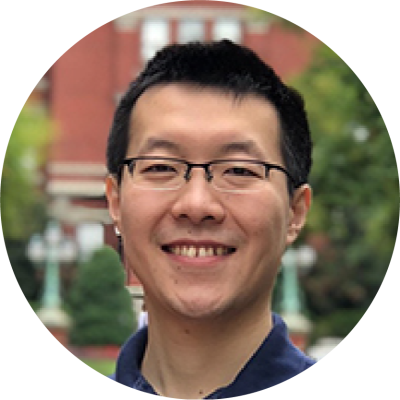
Yiwei Ai
Exosomes are small extracellular vesicles of 30 to 200 nm in diameter. They have the same topology as the cell, and carrying selected proteins, lipids and nucleic acids. They are secreted by all cells, having important roles in health and disease. Under the mentorship of Dr. Stephen Gould at Johns Hopkins, my work focused on exosome biogenesis. In the prevailing model, syntenin drives the biogenesis of CD63 exosomes by recruiting Alix and ESCRT machinery to endosomes and leading to multivesicular endosomes mediated pathway of exosome biogenesis. Here I show syntenin drives CD63 exosome biogenesis by simply blocking CD63 endocytosis, thereby allowing CD63 to accumulate at the plasma membrane, and budding from there subsequently. I also showed the role of endocytosis is not limited to syntenin and CD63. I propose a new model based on our observations: Exosomes primarily bud from the plasma membrane, and endocytosis inhibits the protein loading into exosomes. This model revolutionizes our understanding of exosome biogenesis and has a profound impact on exosome-based drug pharmaceutical industry.
Questions & Answers
Why did you choose Johns Hopkins for your work?
I chose to come to Johns Hopkins because of its long history of training future leaders in medicine as well as its unparalleled research opportunities. I also was drawn to the exceptionally collaborative and supportive community.
What does receiving this award mean to you personally and professionally? Do you have any connection with the particular award you received?
I am deeply honored to be recognized with the Michael A. Shanoff Award and to be listed among its recipients. This accolade strengthens my resolve to continue Dr. Shanoff’s legacy through my commitment to a career as a physician-scientist.
What contributed to your project’s success?
My mentor, Dr. Stephen Gould, has been instrumental in this journey. His encouragement to approach scientific inquiries with innovation and to address fundamental questions has been invaluable. His support and the autonomy he afforded me were pivotal in exploring my scientific curiosities. Mentored by Dr. Gould, I’ve been able to refine my abilities and grow into a confident, self-reliant researcher.
What thoughts do you have about Young Investigators’ Day itself, as a celebration of the roles students and fellows play in research at Johns Hopkins?
Johns Hopkins is a hub of exceptional research, thanks to the remarkable efforts of dedicated students and mentors. Young Investigators’ Day is a testament to these achievements, marking the endpoint of years of unwavering commitment to scientific exploration. It’s also a day to honor mentors for their essential role in nurturing students’ achievements. These promising students and fellows are poised to become the next vanguard of research, embodying the superior education they received at Johns Hopkins well into the future.
What has been your best/most memorable experience while at Johns Hopkins?
So many come to my mind. Teaching, alongside research, has been an immensely rewarding experience. My involvement in educating community college students, teaching Ph.D. students and instructing medical students across several sessions has been a privilege. It is an honor to share my knowledge with younger scholars.
What are your plans over the next year or so? Graduating, looking for faculty positions, etc.?
I plan to defend my Ph.D. thesis in a couple of weeks and return to the field of clinical medicine.
Tell me something interesting about yourself that makes you unique. Do you have any special hobbies, interests or life experiences?
I am very lucky to have met my wife Mengkun Chen. She’s also a medical doctor and a Ph.D. student at Hopkins!